News
What Is PiHole Blocking Cache Credentials? A Simple Guide
Published
4 months agoon
By
Anderson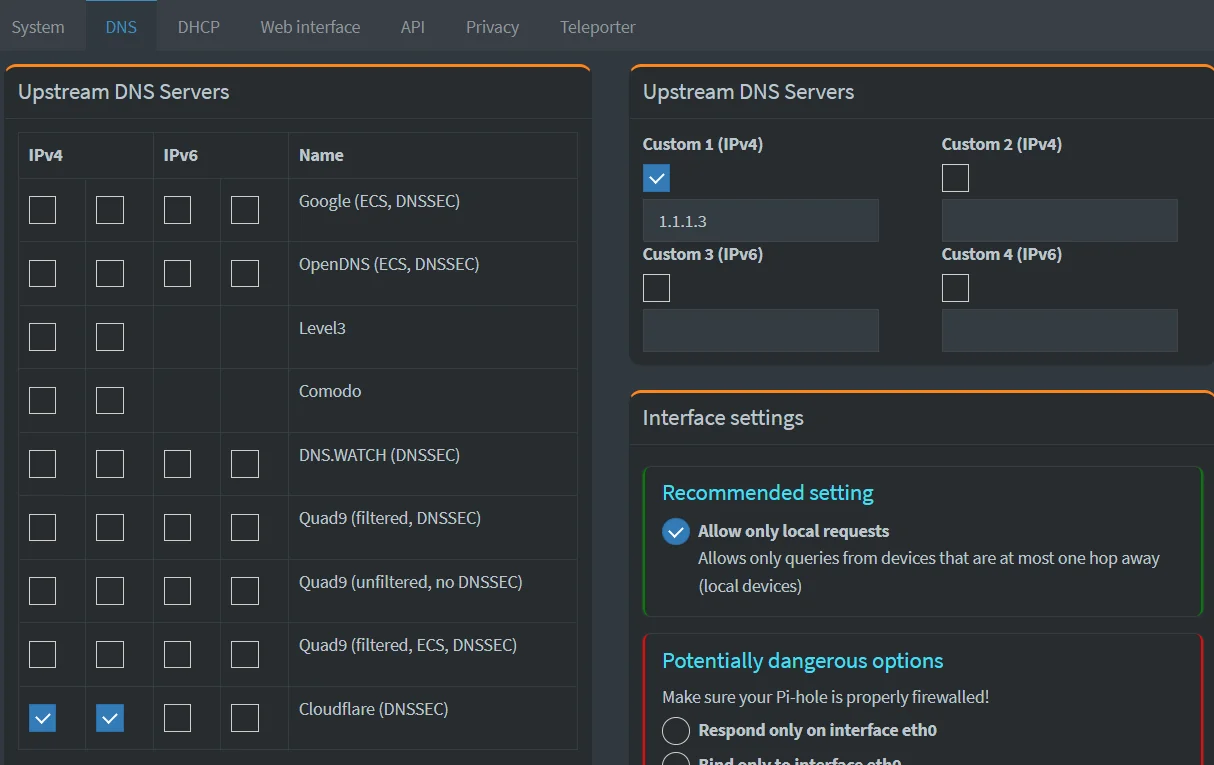
PiHole has become a popular tool for enhancing online privacy and network security. When paired with the ability to block cache credentials, PiHole offers even greater protection against potential security risks. This guide will explain what PiHole blocking cache credentials means, how it works, and how it can improve privacy in simple terms that even a beginner can understand.
What Is PiHole and Why Is It Important?
PiHole, short for “Privacy Hole,” is an open-source software that works as a DNS (Domain Name System) sinkhole. It is typically installed on a Raspberry Pi or a similar device and is designed to block ads, trackers, and unwanted online content across your entire network. Unlike browser-based ad-blockers, PiHole operates at the network level, ensuring that all connected devices—smartphones, tablets, computers, and even smart TVs—can benefit from its filtering capabilities.
But PiHole’s importance goes beyond blocking ads. By controlling how DNS queries are handled, PiHole can prevent malicious domains from reaching your devices, thereby reducing the risk of phishing attacks, malware infections, and other security vulnerabilities. In essence, PiHole acts as a security barrier between your devices and the internet, giving you greater control over your network.
How Does PiHole Block Cache Credentials?
Cache credentials refer to stored pieces of sensitive information—like login data, session IDs, or cookies—that websites and online services save for faster future access. While cache credentials can improve your browsing experience, they can also pose significant security risks if intercepted or misused.
PiHole can block cache credentials by intercepting DNS queries to domains that track or request sensitive information unnecessarily. Using blocklists—curated lists of suspicious or harmful domains—PiHole stops these queries from reaching their destination. When a request for a blocked domain is made, PiHole redirects it to a “black hole” (hence the name sinkhole), preventing the domain from collecting or sending cache credentials. This effectively keeps your sensitive data safe from prying eyes.
Benefits of Blocking Cache Credentials with PiHole
Blocking cache credentials with PiHole offers several advantages that go beyond the basics of ad-blocking. These benefits include enhanced privacy, improved security, and better control over your network.

Why Cache Credentials Are Vulnerable
Cache credentials, while convenient, are a goldmine for hackers. If a malicious actor gains access to these stored pieces of information, they can impersonate users, gain unauthorized access to accounts, or even steal sensitive data. Websites with weak security measures may inadvertently expose cached credentials, making them vulnerable to interception through phishing attacks or man-in-the-middle exploits.
By blocking domains known to harvest or misuse cache credentials, PiHole reduces the likelihood of your data being intercepted. It essentially cuts off communication with sites that don’t respect your privacy or fail to secure your credentials properly.
How PiHole Strengthens Security
PiHole strengthens your network security by ensuring that DNS requests associated with risky domains are never processed. It works like an advanced filter, scrutinizing every request to ensure it’s safe. For example, if you visit a website that tries to load scripts from a tracker or data-harvesting service, PiHole blocks that request. This prevents your cache credentials—like login cookies or session tokens—from being sent to third-party servers.
Additionally, PiHole can be paired with other security tools, such as VPNs and encrypted DNS services, to provide multiple layers of protection. This combination creates a robust security framework that is difficult for attackers to penetrate.
Real-Life Examples of Improved Privacy
One of the most common examples of improved privacy through PiHole is its ability to block third-party trackers. For instance, some advertising networks rely on cookies and session data to build detailed profiles of users. By using PiHole, these trackers are effectively blocked, ensuring that your cache credentials remain private.
Another example is protecting against phishing attacks. Many phishing sites rely on DNS queries to trick users into entering sensitive information. By blocking such domains, PiHole safeguards you from accidentally sharing your credentials with malicious actors.
How to Set Up PiHole for Blocking Cache Credentials
Setting up PiHole is a straightforward process, but it does require some basic technical knowledge. Follow these steps to get started:
- Install PiHole: Download the PiHole software and install it on a Raspberry Pi, a virtual machine, or a Docker container. The official PiHole website provides step-by-step installation guides for different platforms.
- Configure DNS Settings: Once installed, configure your router or individual devices to use PiHole as their DNS server. This ensures that all DNS queries are routed through PiHole for filtering.
- Update Blocklists: PiHole relies on blocklists to determine which domains to block. Add trusted blocklists that include domains known for tracking or harvesting cache credentials.
- Enable Logging and Analysis: PiHole includes a web interface that allows you to monitor DNS queries and fine-tune your settings. Use this interface to analyze requests and ensure that the tool is blocking the right domains.
- Test the Setup: Verify that PiHole is working by visiting websites that typically serve ads or trackers. If these elements are blocked, your PiHole setup is functioning correctly.
Common Problems and Fixes When Using PiHole
While PiHole is a powerful tool, it’s not without its challenges. Here are some common problems users encounter and their solutions:
- Blocked Access to Legitimate Websites: Occasionally, PiHole may block access to legitimate sites that rely on third-party services. To fix this, add the affected domains to your whitelist.
- Slow Internet Speeds: If PiHole is not configured properly, it can lead to slower DNS resolution times. Ensure that your upstream DNS provider (e.g., Cloudflare or Google DNS) is correctly set up in the PiHole settings.
- Compatibility Issues: Some smart devices may have hardcoded DNS settings that bypass PiHole. In such cases, configure your router to force all DNS traffic through PiHole.
Troubleshooting Blocked Websites
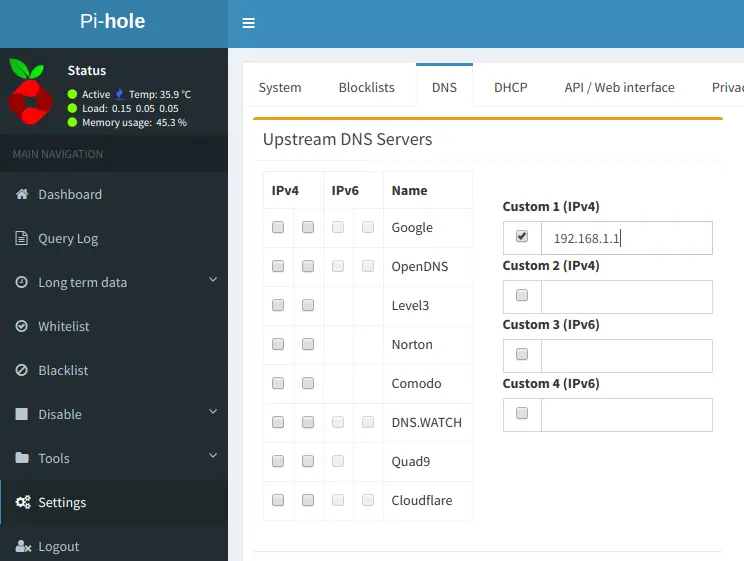
Updating PiHole Blocklists
Keeping your blocklists up to date is essential for maintaining PiHole’s effectiveness. New domains are constantly being created to bypass ad-blockers and privacy tools. Regularly updating your blocklists ensures that PiHole stays ahead of these threats. You can automate blocklist updates using the built-in scheduler or manually update them through the web interface.
When to Use Whitelists
While blocklists are crucial for security, they may occasionally block websites or services you need to access. Whitelists allow you to bypass PiHole’s restrictions for specific domains. For example, if your bank’s website relies on third-party scripts that PiHole blocks, adding these domains to your whitelist will restore functionality.
Advanced Tips for PiHole Users
For advanced users, PiHole offers several customization options to enhance its performance. You can:
- Integrate PiHole with Unbound for encrypted DNS resolution.
- Use regex filters to block domains that match specific patterns.
- Set up conditional forwarding to handle local DNS queries.
These features allow you to tailor PiHole to your specific needs, making it a versatile tool for privacy and security.
Thoughts on PiHole Blocking Cache Credentials
PiHole’s ability to block cache credentials is a game-changer for privacy-conscious individuals. By preventing sensitive data from being intercepted or misused, PiHole adds an extra layer of security to your network. Whether you’re a casual user or a tech enthusiast, the benefits of using PiHole far outweigh its minor inconveniences.
The Bottom Line
In a world where online privacy is constantly under threat, tools like PiHole are more important than ever. By blocking cache credentials and other tracking mechanisms, PiHole helps you take control of your digital life. Its user-friendly interface, combined with powerful filtering capabilities, makes it an essential tool for anyone looking to enhance their online security.
If you’re serious about protecting your sensitive information, setting up PiHole is a step in the right direction. Whether you’re at home or managing a larger network, PiHole offers peace of mind by keeping your data safe and your browsing experience clean.
You may like
News
What Is Product Mapping Task Patent Infringement? A Simple Guide
Published
12 hours agoon
June 1, 2025By
Anderson
When you’re working on mapping products—whether for development, research, or marketing—there’s a hidden risk that many don’t realize: patent infringement. This guide helps you understand what product mapping task patent infringement means, how it happens, and most importantly, how to avoid it. No legal jargon—just easy language for everyone.
What Is a Product Mapping Task?
A product mapping task is when a person or company studies, compares, and analyzes a product to understand how it works. Often, this involves breaking down the features, structure, components, and functions of a product. The goal could be to improve a product, develop a competing one, or assess market trends.
In simpler terms, imagine you open up a toy to see how it works, then try to build something like it. That’s product mapping. Businesses do it too—except they use technical documents, software, reverse engineering, or market research. It’s useful for creating better solutions or staying competitive. But there’s a fine line between learning and copying.
What Does Patent Infringement Mean?
Patent infringement happens when someone uses, makes, sells, or copies a patented idea or product without permission. Patents are legal protections given to inventors. They make sure no one else can use their invention without a license or legal agreement.
Think of it like this: If someone invented a special type of LEGO block that connects in a new way and got a patent for it, no one else can make the same block—even if they didn’t know about the patent. If they do, that’s infringement. The U.S. Patent and Trademark Office (USPTO) protects these rights in the United States, and if someone breaks the rules, they can face lawsuits, penalties, or be forced to stop production.
Why Mapping Products Can Lead to Legal Trouble
Product mapping might seem harmless, but it can get tricky legally. That’s because when you study an existing product too closely, you might accidentally recreate or mimic something that is already patented. Even small similarities can cause issues.
If you’re not careful, you might use an idea that legally belongs to someone else. This is more common than people think, especially in tech, toys, consumer goods, software, and electronics.
Copying Ideas Without Knowing
Many businesses don’t even know they’re doing something wrong. For example, a startup might build a mobile app by studying features from a top competitor. But if any part of that app is patented—like a unique algorithm or layout—they could get sued. You don’t need to copy the whole product; copying one key part can be enough.
Small Changes Still Count
Changing a product slightly doesn’t mean it’s safe. If the core function is the same as a patented product, the change might not matter. For instance, if someone adds a different handle to a patented coffee maker, but the heating system is copied, that’s still infringement.
Patents Are Like Rules
Patents work like strict rules in a game. If you break them—even by mistake—you’re still in trouble. Ignorance is not a defense in most courts. That’s why businesses must always be careful when using ideas from other products, even during basic research or product mapping.
Real-Life Example of Product Mapping Causing Issues
Let’s look at a simplified version of a real-life situation. A small company studied a popular fitness tracker to create its own version. They opened the device, studied the sensors, and used a similar wristband design. They thought it was safe because they used different software.
But the problem was, the way the heart-rate monitor worked was patented by the original company. Even though the software and outer design were different, the technology inside was too similar. The original company filed a lawsuit. The small company had to pay fines and stop selling their tracker. All because of a product mapping task gone wrong.
This shows how important it is to understand what you can and can’t do when analyzing existing products.
How to Avoid Patent Problems When Mapping Products
Avoiding legal trouble starts with being cautious and informed. Before you begin a product mapping task, understand the legal limits. Don’t just assume something is okay to use because it’s on the market or seems basic.
Always check if any part of a product or idea is protected by patents. You can search the USPTO database or use tools like SEMrush and Ahrefs to analyze product-related keywords and trends. These tools also show what competitors are doing—but remember, visibility doesn’t mean permission.
If your goal is to create a better product, use mapping as inspiration—not as a blueprint. Focus on solving problems in new ways rather than copying what others have done.
Simple Tips to Stay Safe
Here are some easy and practical ways to avoid patent infringement during product mapping: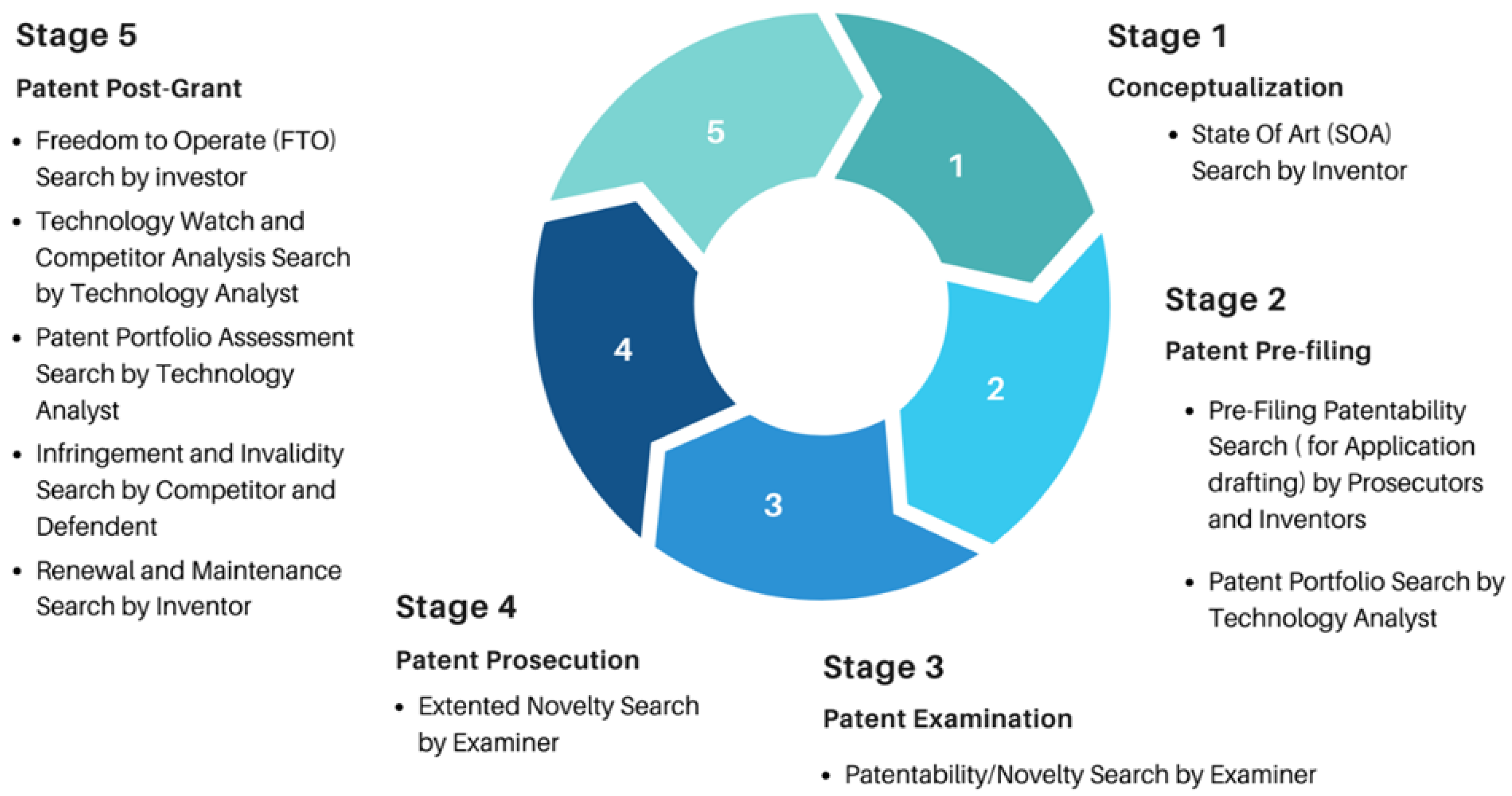
Use Public Info Only
Only use information that is available publicly and legally. Don’t reverse engineer software, hardware, or tech products unless you are sure it’s allowed. Stick to public specifications, manuals, or reviews.
Keep Records
Always document your research process. Record where your ideas came from, what sources you used, and how your design is different. This can help prove that you didn’t copy someone else’s work intentionally.
Ask for Permission
If you really like a certain product feature and want to use it, ask the patent owner for permission. Many companies license their patents. You might have to pay a fee, but it’s much cheaper than a lawsuit.
What Happens If You Break Patent Rules?
If you break patent laws, the consequences can be serious. You could be sued by the patent holder, forced to stop selling your product, or pay huge amounts in damages. Even if you didn’t mean to break the law, the court might still hold you responsible.
In some cases, companies also suffer damage to their reputation. Investors pull out, partners leave, and customers lose trust. All of this can destroy a business—just because someone didn’t double-check a patent before launching a product.
The Bottom Line
Product mapping tasks are important for innovation and staying competitive. But when done carelessly, they can cross into illegal territory. Patent infringement is a real risk, even if you don’t copy intentionally.
The best way to protect yourself is to learn the basics of patent law, use trustworthy tools, and take each step carefully. Whether you’re a solo inventor, startup founder, or product developer, remember: just because you can see or access a product doesn’t mean you’re allowed to copy it.
News
What Is Speedwind? Everything You Need to Know in Simple Words
Published
12 hours agoon
June 1, 2025By
Anderson
Speedwind is a rising name in the world of internet services in the United States. If you’re someone who needs fast internet, simple tools, and an easy setup without all the tech talk, Speedwind might be just what you’re looking for. Let’s break it down in easy language so that even a 10-year-old could understand.
What Is Speedwind and Why Is Everyone Talking About It?
Speedwind is a new kind of internet service that’s becoming popular across the United States because it’s fast, reliable, and super simple to use. It doesn’t matter if you’re a student, a small business owner, or someone who just wants good internet at home—Speedwind has something for everyone.
Most people talk about Speedwind because it promises fast wifi in the USA without all the complex contracts and slow customer service many internet providers are known for. It’s like having lightning-speed internet, but without all the usual headaches. Speedwind is designed to be affordable, user-friendly, and powerful enough for both home users and small businesses.
With more people working from home and using streaming platforms, the need for fast internet is higher than ever. Speedwind answers that demand with smart services and tools that even someone with little tech knowledge can manage easily.
How Speedwind Works in Simple Words
Imagine you buy a box, plug it into the wall, and suddenly your whole house has strong, fast internet. That’s basically how Speedwind works. It uses smart Wi-Fi tools and powerful network systems to bring internet straight to your home or office without long wait times or hard-to-understand setups.
Speedwind uses special technology that finds the strongest signals near your area, boosts them, and sends them directly to your device—whether you’re on your phone, laptop, or smart TV. This means no more buffering, no more lag, and no more dropped calls on Zoom.
You don’t need a technician to install anything. Most people can set it up themselves in minutes, which is why so many people love how simple Speedwind is. It also works with most modern devices, so there’s no need to buy anything new. Whether you live in a small apartment or a big house, Speedwind adjusts automatically to give you the best internet signal.
Top Things Speedwind Is Used For
Speedwind is not just about fast internet—it offers a lot more that helps in daily life. People use Speedwind for all kinds of things, from watching videos to managing online businesses. Here’s what makes it special:
Fast Internet Help
Speedwind gives super-fast internet that works well for streaming, gaming, working from home, and even for kids doing online classes. It supports high-speed downloading and uploading so your videos play smoothly, your games don’t lag, and your work gets done faster.
This makes it a great choice for those looking for fast wifi service in the USA or internet for gamers, Zoom meetings, or Netflix binge-watching without interruptions.
Safe and Smart Tools
One of the best things about Speedwind is its built-in safety features. Parents can set limits for kids, and businesses can control who accesses their network. Speedwind also uses smart firewall protection and anti-virus layers to keep your internet activity safe.
It also comes with tools that tell you how your internet is working, how much data you’ve used, and what devices are connected—making it very user-friendly internet.
Easy Setup for Everyone
Most people don’t like calling a technician or dealing with wires and routers. That’s why Speedwind made its setup process so easy, anyone can do it. You just plug in the device, connect it to your phone or laptop, follow a few simple steps, and you’re ready to go.
It’s truly internet setup made easy, with no drilling, no waiting for appointments, and no complicated steps.
Is Speedwind Good for Your Home or Business?
Yes, it’s great for both. If you need reliable internet for home use, Speedwind is perfect for watching movies, attending school online, using social media, and even for smart home devices like Alexa or Google Home.
For small businesses, Speedwind offers business-grade internet tools that are simple yet powerful. You get fast download speeds, stable connections, and smart monitoring tools. This helps you run websites, manage online stores, attend video meetings, and much more without downtime or lag.
It’s especially good for people who want cheap internet services that work well without spending hundreds of dollars each month.
Speedwind vs. Other Services: What’s Different?
So what makes Speedwind different from big names like Spectrum, AT&T, or Comcast? It’s all about simplicity, speed, and support.
- No long contracts: Most internet providers lock you into long deals. Speedwind doesn’t.
- No confusing bills: You pay what you see—no hidden charges.
- Faster customer support: Need help? Speedwind actually answers quickly.
- Simple tools: You don’t need to be tech-savvy.
- Works everywhere: Even in rural areas, Speedwind may offer a better signal than traditional broadband.
These differences make it one of the best internet options for home and small business users, especially if you’re tired of confusing and expensive alternatives.
How to Start Using Speedwind Today
Getting started with Speedwind is easy and only takes a few minutes. Here’s how:
Visit the Website
Go to the official Speedwind site. You’ll find clear info on what plans are available, how it works, and what tools come with it. The website is simple and easy to understand.
Pick What You Need
Choose the plan that fits your needs—whether it’s just for home internet, for work, or both. There are options for every budget and use. You can even select tools like extra signal boosters or safety add-ons if you want them.
Enjoy the Speed!
Once your order arrives, just plug it in, follow the setup guide, and you’re ready. Your home or office will have strong, stable internet in just a few minutes. No need for a tech expert.
Speedwind Reviews: What People Are Saying
Many users are calling Speedwind a game changer for internet at home. People love the fast speeds, easy setup, and low cost. One user said, “I set it up in 5 minutes and my Netflix never buffered again.” Another review said, “As a small business owner, Speedwind has been the best decision I’ve made this year.”
Others praise it for working well even in rural or hard-to-reach areas where regular broadband doesn’t work properly. Whether you’re a student, gamer, or remote worker, reviews show high satisfaction rates across the board.
The Bottom Line
Speedwind is more than just another internet provider—it’s a smarter, faster, and easier way to get connected in the United States. It gives you the speed you need, the safety you want, and the simplicity you’ll love. Whether you’re setting it up for your family at home or using it to run your online business, Speedwind makes everything smoother.
With no complex contracts, no hidden charges, and no long waiting times, Speedwind is becoming a favorite for people who just want fast, safe, and affordable internet without all the tech drama.
News
What Is Mii Tempre? A Simple Guide for Everyone
Published
2 days agoon
May 31, 2025By
Anderson
When people talk about “Mii Tempre,” they’re usually referring to their body temperature. Knowing your Mii Tempre can help you understand if you’re feeling well or if something might be wrong, like having a fever or being too cold. It’s a simple but important health check that anyone can do, even at home.
What Does Mii Tempre Mean?
Mii Tempre is a casual or simplified way to talk about body temperature—how warm your body is on the inside. Your body works hard to keep this temperature steady, even when it’s hot or cold outside. This internal temperature is one of the vital signs doctors check to make sure your body is working properly.
For most people, a normal Mii Tempre means their body is healthy and functioning just right. But if your Mii Tempre is too high or too low, it might be a signal that something is wrong, like an infection, illness, or other health issue.
Some people use the phrase “Mii Tempre” while searching online for help with temperature readings, especially in the United States. They might be checking their fever temperature, wondering what’s normal, or trying to understand how to measure it at home without a visit to the doctor.
Why Is Mii Tempre Important?
Your Mii Tempre tells you a lot about how your body is doing. It’s one of the fastest and easiest ways to know if you might be sick. A normal temperature means everything is probably okay. But if your temperature is too high (a fever) or too low (hypothermia), your body may be telling you that it’s fighting something off.
High Mii Tempre usually means your body is fighting an infection like a cold, flu, or even COVID-19. A low Mii Tempre can mean your body is not producing enough heat, which might happen in very cold environments or due to certain medical conditions.
Doctors, parents, teachers, and even kids use Mii Tempre checks every day. That’s why it’s important to know what your normal temperature is and what signs to look out for when it changes.
What Is a Normal Mii Tempre?
A normal Mii Tempre (or body temperature) usually falls between 97°F (36.1°C) and 99°F (37.2°C). The most commonly accepted average is about 98.6°F (37°C). However, “normal” can be slightly different for each person. Some people naturally run a little cooler or warmer than others.
It’s important to remember that your Mii Tempre can also change depending on the time of day, what you’ve eaten, how active you’ve been, and even how you feel emotionally. It’s best to know your own “normal” temperature so that you can notice when something feels off.
Normal Mii Tempre for Adults
For most adults, the average Mii Tempre is around 98.6°F, but anything from 97°F to 99°F is usually considered normal. It might go up a little after exercise or during stress. For women, temperature can also change during their menstrual cycle or pregnancy.
Normal Mii Tempre for Kids
Children usually have a slightly higher normal Mii Tempre than adults. For babies and kids, the range can be 97.9°F to 100.4°F. Since kids get fevers more often, it’s helpful for parents to understand what’s normal and what might be a sign of illness.
Mii Tempre That Means You Have a Fever
You’re considered to have a fever if your Mii Tempre is:
- 100.4°F (38°C) or higher for both adults and kids
- Between 99°F and 100.3°F, this is often called a low-grade fever
- Over 102°F, it’s a moderate to high fever and may need attention
Fevers are usually caused by infections, but they can also result from vaccines, heat exhaustion, or other health conditions.
How Can I Check My Mii Tempre at Home?
You can easily check your Mii Tempre at home using a digital thermometer, which gives a fast and accurate reading. Here are some ways to take your temperature:
- Orally (in the mouth) – Common for adults and older kids.
- Rectally (in the bottom) – Best for babies and toddlers.
- Axillary (under the arm) – A bit less accurate but still useful.
- Forehead or ear thermometers – Quick and easy, but sometimes need calibration.
Always clean your thermometer before and after use. If you’re using a new device, follow the manual closely to get the most accurate result.
Some people also search for “how to check fever without thermometer” or “feel feverish but no thermometer.” If you don’t have one, check for symptoms like chills, sweating, flushed skin, tiredness, or feeling unusually hot or cold. But getting a proper thermometer is always the best choice.
What Causes High Mii Tempre?
A high Mii Tempre—or fever—usually means your body is trying to fight off something bad. The most common causes include:
- Infections (cold, flu, ear infections, strep throat)
- Viruses (like COVID-19, RSV, or influenza)
- Bacterial infections (UTI, pneumonia, etc.)
- Heat exhaustion or heatstroke
- Immunizations (fever after a vaccine is common in kids)
- Autoimmune conditions or chronic illnesses
Sometimes your Mii Tempre can also go up due to stress, too much exercise, or even too much time in the sun.
What to Do if Your Mii Tempre Is Too High
If your Mii Tempre is above 100.4°F, you may have a fever. Most of the time, this isn’t dangerous and can be managed at home. Your body is working to fight an illness, and the fever is actually part of the healing process.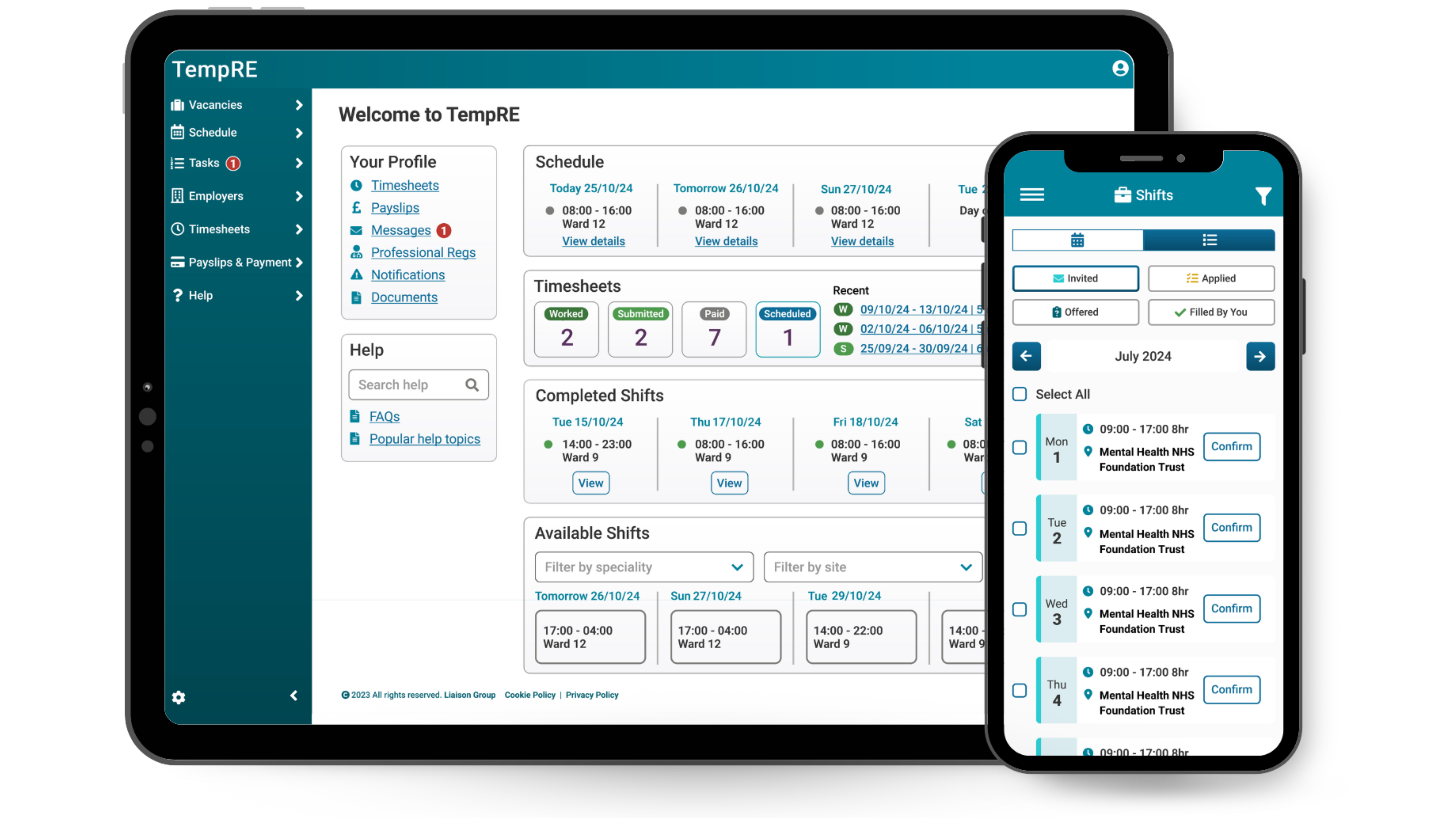
But if your fever is very high, stays for more than three days, or comes with serious symptoms like a rash, confusion, or trouble breathing, it’s time to take action.
Cool Ways to Lower Your Mii Tempre
Here are some simple steps to bring down a high temperature:
- Drink lots of water to stay hydrated
- Rest – Your body heals faster when you’re not moving around too much
- Use a cold compress or wet cloth on the forehead
- Wear light clothes and avoid heavy blankets
- Take medicine like acetaminophen (Tylenol) or ibuprofen (Advil), if recommended
Always follow dosing instructions on the medicine box or ask a doctor if unsure.
When to See a Doctor
You should see a doctor if:
- Your fever is above 103°F
- It lasts more than 72 hours
- You have other serious symptoms (like stiff neck, rash, confusion, vomiting)
- You’re caring for a baby under 3 months with a fever
- You feel extremely weak, dizzy, or confused
It’s always better to be safe and check with a healthcare provider when you’re unsure.
What Causes Low Mii Tempre?
A low Mii Tempre can also be a sign of health problems. When your body temperature drops below 95°F (35°C), it’s called hypothermia. This can happen if you spend too much time in a cold place or if your body is not producing enough heat.
Other causes of low Mii Tempre include:
- Thyroid problems
- Low blood sugar
- Certain medications
- Sepsis
- Dehydration
If someone is shivering, confused, or has cold skin, get them warm and seek medical help right away.
Mii Tempre in Babies and Little Kids
Babies and toddlers can’t always say how they feel, so checking their Mii Tempre is really important. A fever can be a first sign of illness, even before other symptoms show.
- Use a rectal thermometer for the most accurate results in babies under 3 months.
- A fever in babies (above 100.4°F) should be taken seriously.
- Call your doctor right away if a newborn has any sign of fever.
For kids, watch for symptoms like crying more than usual, not eating, or feeling sleepy all the time. These can go hand in hand with a high Mii Tempre.
The Bottom Line
Mii Tempre is more than just a number—it’s your body’s way of telling you how it’s doing. Whether it’s normal, high, or low, your temperature can give important clues about your health.
If you’re feeling off, grab a thermometer and check your Mii Tempre. If it’s too high or low, take steps to fix it, and don’t hesitate to ask a doctor for help. Keeping an eye on your temperature is one of the easiest and smartest things you can do to stay healthy—whether you’re a kid, an adult, or a parent watching over your child.
Understanding Mii Tempre doesn’t have to be hard. Now that you know what it means, how to check it, and what the numbers tell you, you’re ready to take good care of yourself and the people you love.

What Is Product Mapping Task Patent Infringement? A Simple Guide

What Is Speedwind? Everything You Need to Know in Simple Words

What Is Freeworlder.org? A Fun Guide You Can Understand

TuGuiaUSA.com, Empleos y Oportunidades en USA

Camille Monfort, Shadows of the Crimson Moon

Breaking News: Tea Leoni and Tim Daly Announce Split
Trending
-

 Business5 months ago
Business5 months agoTuGuiaUSA.com, Empleos y Oportunidades en USA
-

 Life Style6 months ago
Life Style6 months agoCamille Monfort, Shadows of the Crimson Moon
-

 Life Style6 months ago
Life Style6 months agoBreaking News: Tea Leoni and Tim Daly Announce Split
-

 Games5 months ago
Games5 months agoUnlocking Access to Unblocked Games World at School
-

 Life Style6 months ago
Life Style6 months agoJulio Urias Wife: Inside His Life with Daisy
-
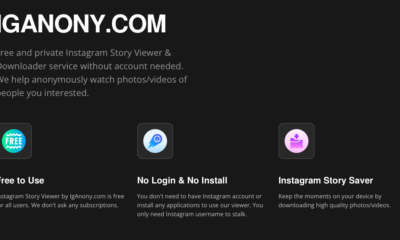
 Life Style5 months ago
Life Style5 months agoIgAnony: The Anonymous Instagram Story Viewer
-

 Education6 months ago
Education6 months agoTribute Printed Pics: A Special Way to Remember
-

 Technology10 months ago
Technology10 months agoGeekzilla Radio – Your Ultimate Geek Culture Nexus

